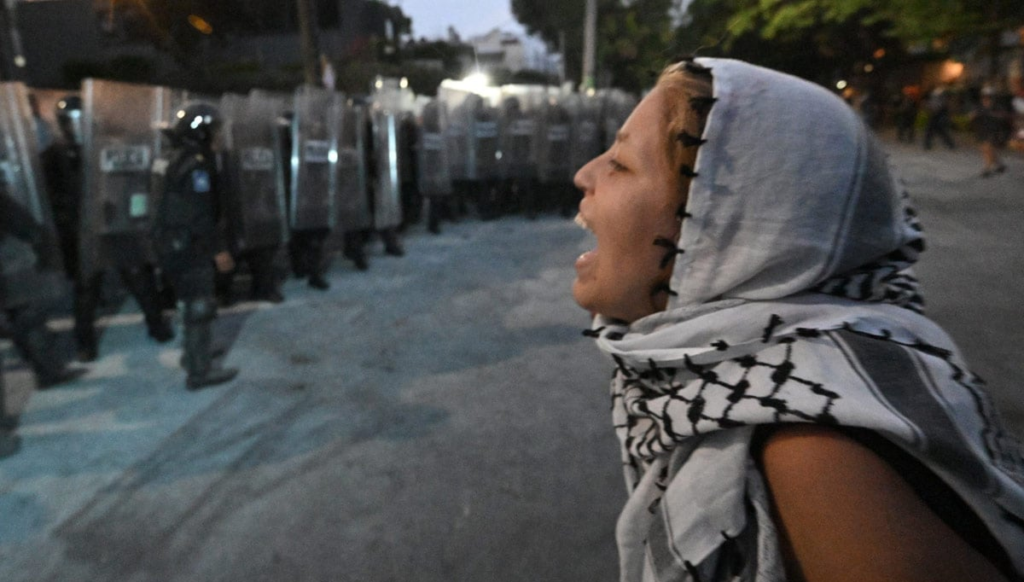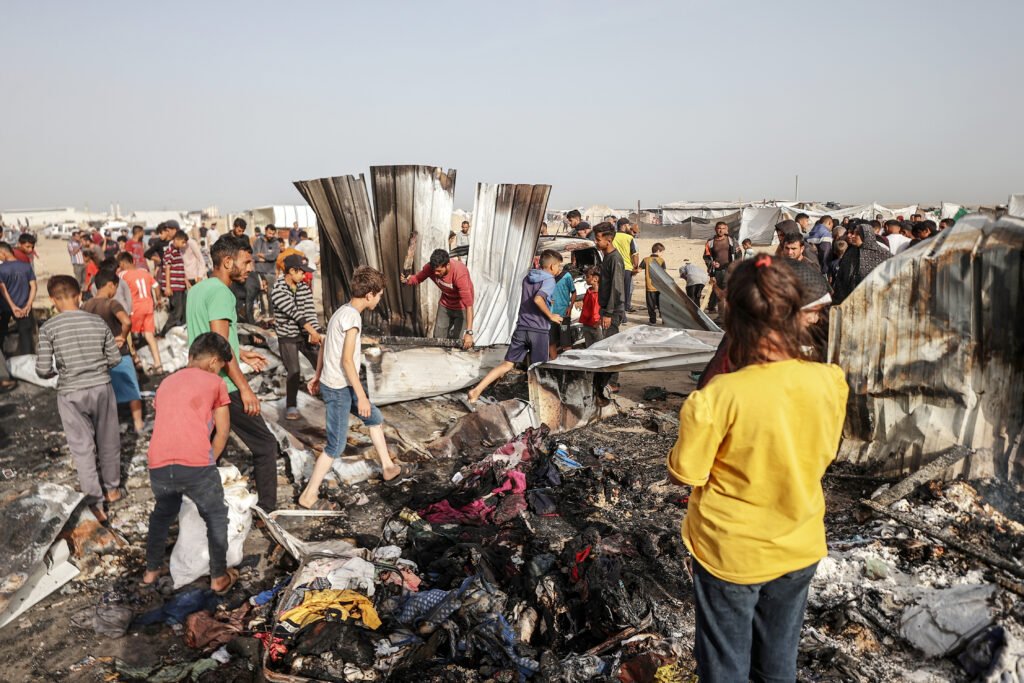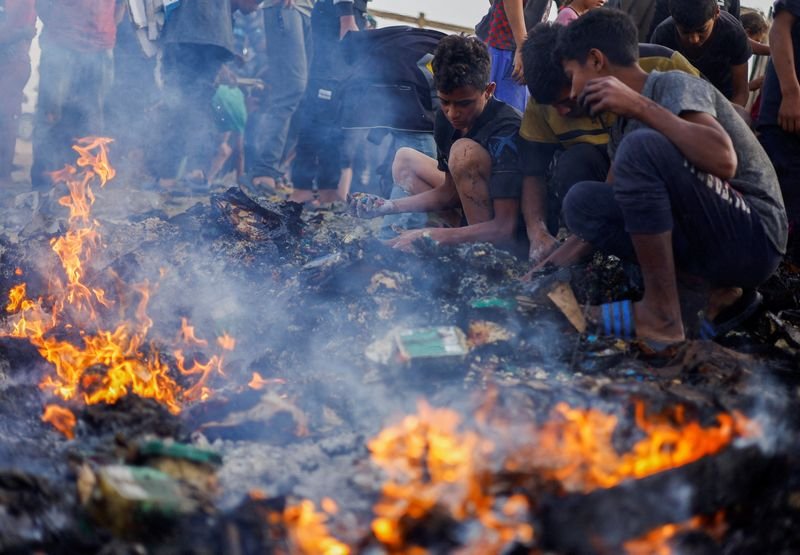
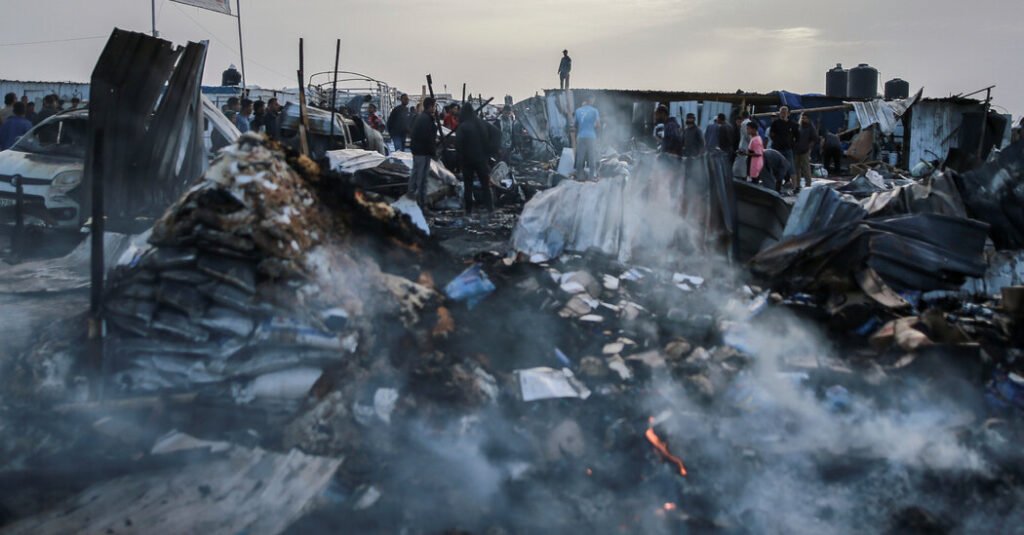
In one of the most devastating attacks yet, an Israeli airstrike on a designated “safe zone” for displaced Palestinians in northern Rafah killed at least 45 civilians, mostly women and children. This horrifying assault, part of a larger campaign across Gaza, has become a tipping point in the conflict, igniting international outrage. Witnesses and humanitarian organizations on the ground have reported graphic scenes: charred remains, children separated from their families, and entire families wiped out as tents melted from the blasts.
Gaza’s latest assault, marked by indiscriminate bombings, has pushed Rafah — once seen as a final refuge — into a humanitarian nightmare. In recent months, Israeli forces have killed or injured over 100,000 Palestinians, leaving two million people in desperate conditions. As families seek safety in designated “humanitarian” zones, the strikes continue unabated, heightening global calls for justice and accountability.
The Aftermath of Israel’s Assault on Rafah
Eyewitnesses and aid workers describe the aftermath of the Rafah attack in harrowing terms. According to the Palestine Red Crescent Society, victims, including many children, were “burned alive” as the flames engulfed their tents. A doctor at Rafah’s Kuwaiti Hospital recounted the chilling reality: “The tents were melting, and so were the bodies inside.” Images from the attack reveal scenes that many call unspeakably barbaric, showing the extent of devastation inflicted on families who had sought only a safe shelter.
The attack on Rafah occurred mere days after the International Court of Justice (ICJ) ordered Israel to halt its military operations in Gaza. Despite this ruling, Israel has intensified its campaign, bombarding Rafah over a hundred times in the days since. These actions defy international warnings, as Israel’s Prime Minister, Benjamin Netanyahu, appears more intent on maintaining political control than observing international law. Calls from leaders like former UK Labour Party head Jeremy Corbyn, who condemned the attacks as a “monstrous failure of humanity,” have been met with little tangible action to deter further violence.
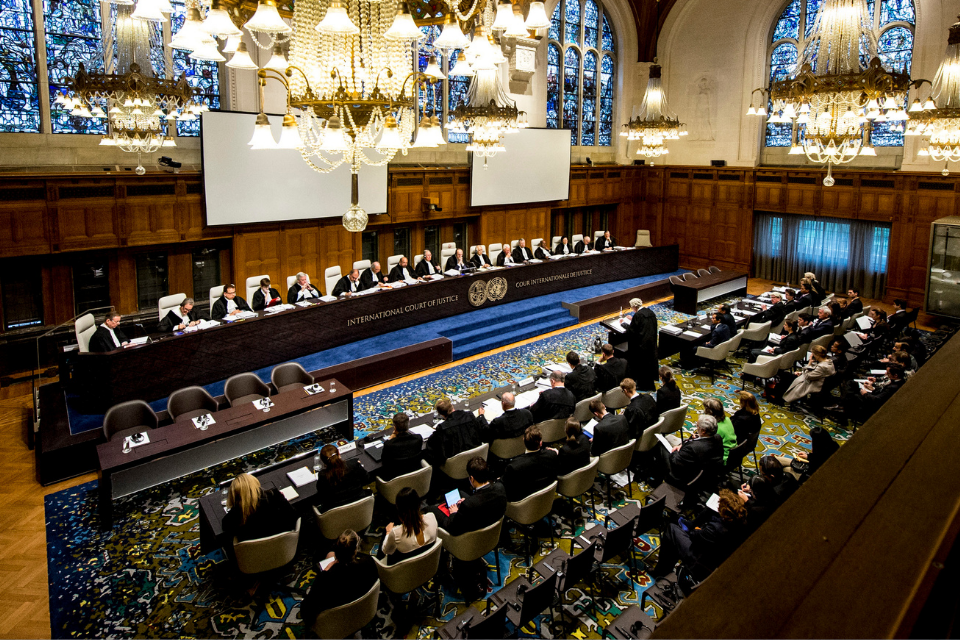
Western Responses: Hollow Words and Limited Action
Although world leaders have issued statements of concern over Rafah’s destruction, meaningful action remains elusive. European Union foreign policy chief Josep Borrell and French President Emmanuel Macron have condemned the strikes, with Macron stating he was “outraged by the killing of displaced people in Rafah.” Yet, as displaced Palestinians continue to seek shelter in an ever-shrinking territory, global leaders’ words lack the commitment needed to enact change.
Rafah, now the last refuge for over 1.4 million Palestinians, bears the brunt of Israel’s ongoing assault. This attack follows similar bombings in Gaza’s other shelters, including Jabalia and Nuseirat, where strikes on populated areas left hundreds dead and thousands injured. The sheer scale of Israel’s operations has resulted in an estimated 36,000 casualties, including over 15,000 children, displacing nearly two million. Despite the mass suffering, Western nations have shown little willingness to challenge Israel’s campaign, raising questions about the limits of international concern.
Global Outrage Grows in the Face of Impunity
Israel’s actions in Gaza, despite clear breaches of humanitarian norms, continue with near-total impunity. With the US and other Western powers providing unwavering support, Israel’s leaders operate largely shielded from international accountability. Thousands within Israeli social media circles have even openly celebrated the IDF’s campaign, sharing images from Gaza with disturbing enthusiasm.
Over recent months, Palestinians in Gaza have turned to social media, documenting their daily struggles and pleading for intervention. However, Western nations remain steadfast in their diplomatic support for Israel, their concerns limited to statements of regret. Rather than sanctioning a state openly violating international law, the global community’s response to Gaza’s suffering has amounted to little more than empty gestures. For Palestinians, the massacre in Rafah is a grim milestone, one that has reshaped global perceptions and ignited calls for substantive international intervention.
The International Community’s Moral Reckoning
The sustained assault on Rafah, a clear violation of humanitarian norms, forces the world to confront a difficult question: will Israel be held accountable for its actions, or will global powers continue to prioritize diplomatic alliances over justice? Calls for change have resonated across civil society, with student groups, labor unions, and activists worldwide uniting to demand an end to Gaza’s suffering. Mass protests, boycotts, and labor strikes targeting companies supporting Israel’s military efforts reflect a swelling tide of solidarity that may represent the only real hope for change.
As the suffering in Rafah deepens, the world watches a human tragedy that crosses every boundary of brutality. The time for mere statements has passed — the question now is whether the world will finally step forward to prevent further atrocities. Gaza’s plight has galvanized a global movement for justice, a demand that transcends borders and calls for a future where violence and oppression have no place.
